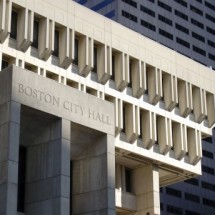In Massachusetts, entertainment licenses must be obtained from the local licensing authority. Entertainment licenses in the City of Boston falls under the purview of the mayor pursuant to various acts of the legislature, including Mass. Acts & Resolves, ch. 110, § 14 (1821), Mass. Acts & Resolves, ch. 494, § 3 (1908), and Mass. Gen. Laws, ch. 140, §§181, 183A, 177, 177A. The director of the Mayor’s Office of Consumer Affairs and Licensing, located on the 8th floor of City Hall, controls the issuance of entertainment licenses.
The licensing authority must approve annual entertainment licenses where food or drink is served on the location’s premises. Mass. Gen. Laws ch. 140, § 183A applies to any concert, dance, exhibition, cabaret, or public show conducted on the premises of an establishment that holds an alcoholic beverage, beer and wine license, or common victualler license issued pursuant to Mass. Gen. laws ch. 138 or 140. Section 177A applies to the licenses for automatic amusement devices, including pinball machines, video games, and video poker (so long as the winners were paid in free games only and the machines were not used for gambling). Section 177 applies to billiard tables and bowling alleys.
Applications for entertainment licenses are distinguished statutorily by whether the applicant is seeking a live or non-live entertainment license. Live entertainment includes disc jockeys, instruments, vocalists, dance performances, dance floors, and karaoke equipment. Upon tendering the written application, a public hearing, with the cost of $100 to the applicant, will be scheduled to take place three to four weeks later. The applicant and the party to be in control of the premises must be present at the hearing. Further, the applicant must file a variety of documents including its fire assembly permit and alcoholic beverage license to the Consumer Affairs and Licensing Office for consideration. Often times, this hearing will be waived where the application is for a non-live entertainment license. Non-live entertainment includes: Radio; Jukebox; Cassette/Compact Disk Player; Dartboard(s); TV(s); and other forms of prerecorded music.
Determinations by the Mayor’s Office of Consumer Affairs and Licensing regarding applications for entertainment licenses are made on a case-by-case basis. The Office, in making its decision, may consider the neighborhood of the establishment and the opinion of its neighborhood association, its proximity to residential homes or apartments, the construction of the building, and the expected resulting noise level, among other factors. Further, additional conditions may be imposed, including the closing of windows and doors when live entertainment begins, or no later than 10:00pm on weeknights or 11:00 pm on weekends. Outdoor entertainment may be allowed in the absence of any neighborhood concerns, but on a one time per application basis.
Entertainment License holders who violate the terms of their license may subject the license to possible suspension, revocation, or further conditions. Mass. Gen. Laws, ch. 183A or 181. Penalties, nevertheless, must be contemplated with consideration to the First Amendment, making penalties less discretionary unless justifiable. A public hearing thus precedes any modification or suspension, and the determination must serve important public interests by the least-restrictive means possible.


That is this type of fantastic resource that you’re offering and also you provide absent at no cost. I love viewing web sites that understand the price of offering a good resource at no cost.
We aim to please! Follow us for more on twitter @ConnellLaw
Cheers,
RS